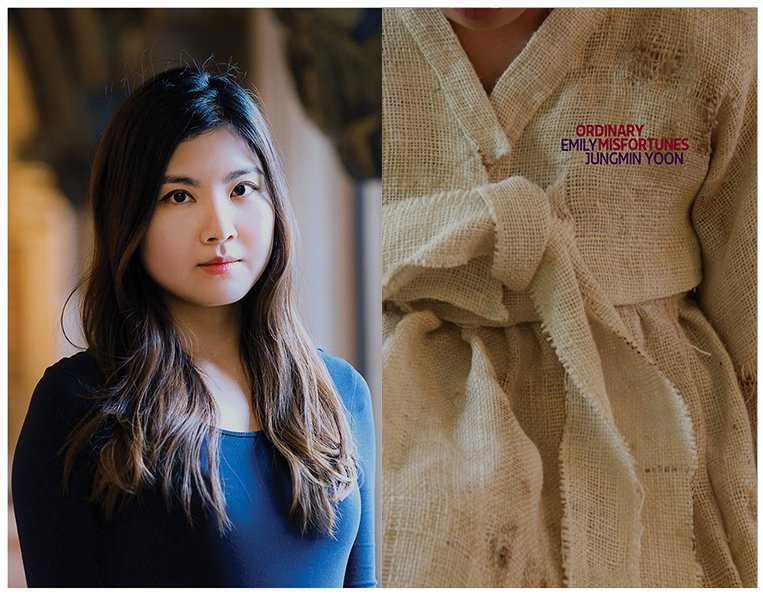3-Minute Book Review: Lauren Moseley on Emily Jungmin Yoon
Three-Minute Book Review: Lauren Moseley on Emily Jungmin Yoon’s Ordinary Misfortunes (Tupelo Press, 2017)
–
1) If you planted this book in the ground, what would grow?
A pear tree, a train, a monument to the wianbu—Korean women and girls who were kept and repeatedly raped by Japanese soldiers during World War II.
Most of the poems in this powerful chapbook refer to these “comfort women.” As the author notes in the acknowledgements, poems in the series “Testimonies,” in the middle of the book, “draw upon documentary materials in Comfort Women Speak: Testimony by Sex Slaves of the Japanese Military.” Poems outside that series speak to this historical atrocity as well. As Yoon notes in the poem “An Ordinary Misfortune” [There was a man …], many soldiers believed that “sex before battle” was a “charm against harm.”
2) What is this book’s theme song?
“Spring” (especially the 2ndmovement, Largo) by Antonio Vivaldi.
In the poem “Comfort,” Yoon writes:
The condom said Attack Number One.
Rinsed for reuse. On Wednesday,
I listened to The Four Seasons.
It stopped raining. It never stopped
raining. On Wednesdays, it rains
for the children they bore. For the children
they could not bear. For the children
they were.
In Ordinary Misfortunes, showers do not bring flowers: they bring more rain. But these poems are anything but a senseless, incessant deluge. They honor the victims of tragedy by refusing to ignore the violence that occurred and its lasting effects.
3) If this book were an animal, what animal would it be?
An elephant. The elephant is the totem animal of memory, of remembering. Let me explain further with a quote from “An Ordinary Misfortune” [Hunting ground with knife-ghosts]. Yoon writes (from the point of view of a comfort woman), “Every door is closed. 70 years and no one knows. No one who knows my past is alive.”
With this chapbook, the poet opens doors to a past that must be known, and readers will never forget it. I can’t wait to read Yoon’s first full-length collection, A Cruelty Special to Our Species, which came out from Ecco this fall.
Lauren Moseley’s debut poetry collection, Big Windows, was published earlier this year by Carnegie Mellon University Press. Her poems have appeared in the anthologies Best New Poetsand Women Write Resistanceand in such magazines as FIELD, Narrative, The Journal, and Copper Nickel. Lauren has been a fellow at Yaddo and the Virginia Center for the Creative Arts. She lives in Durham, North Carolina, and her website is laurenjmoseley.com.

